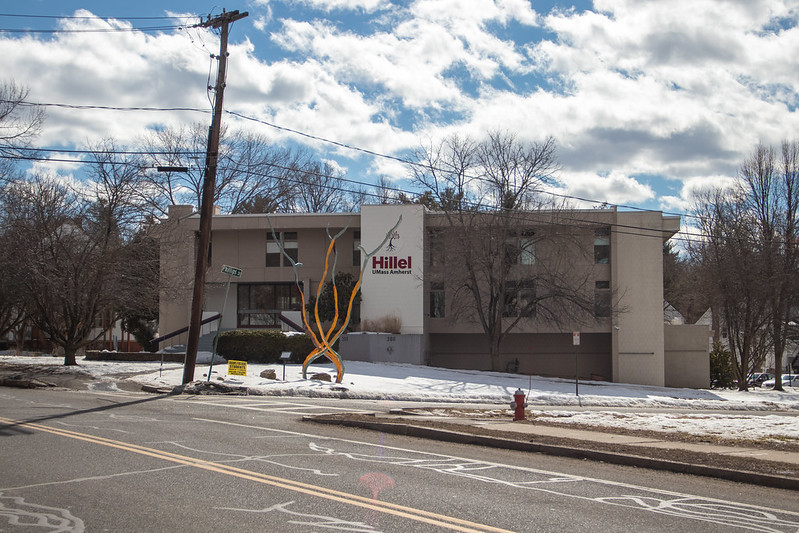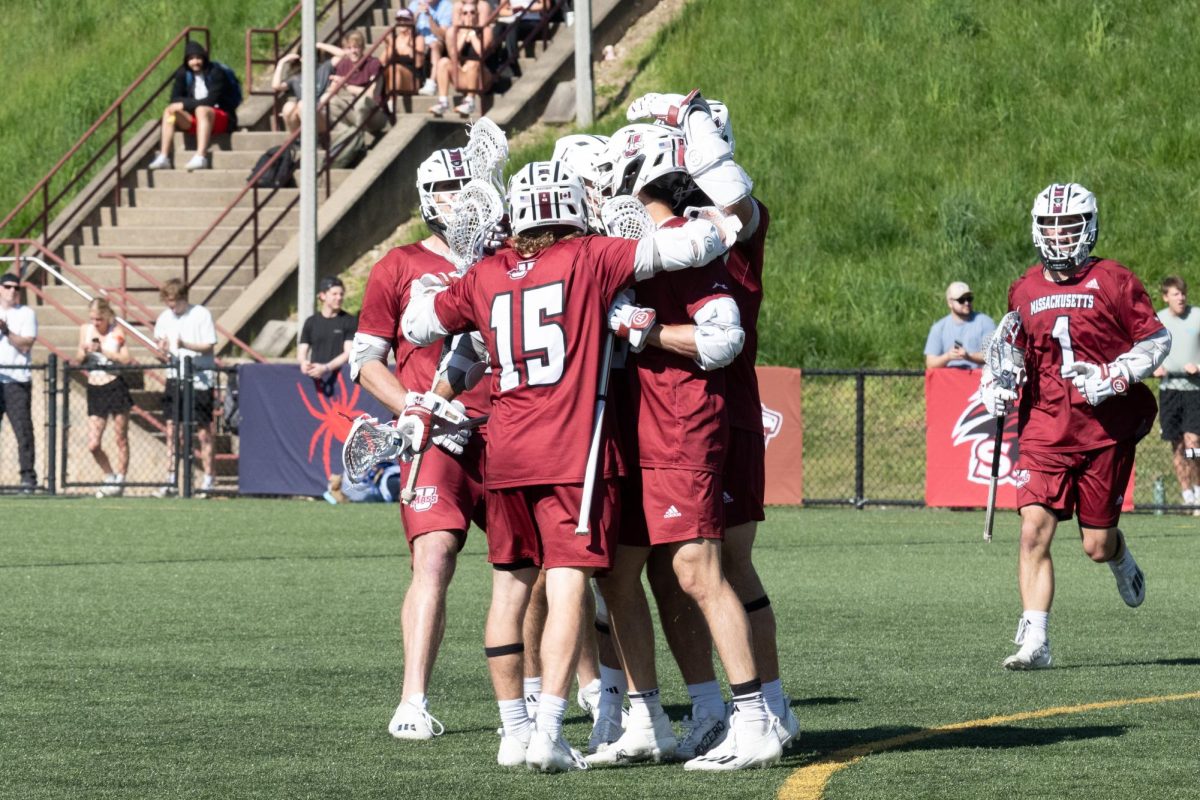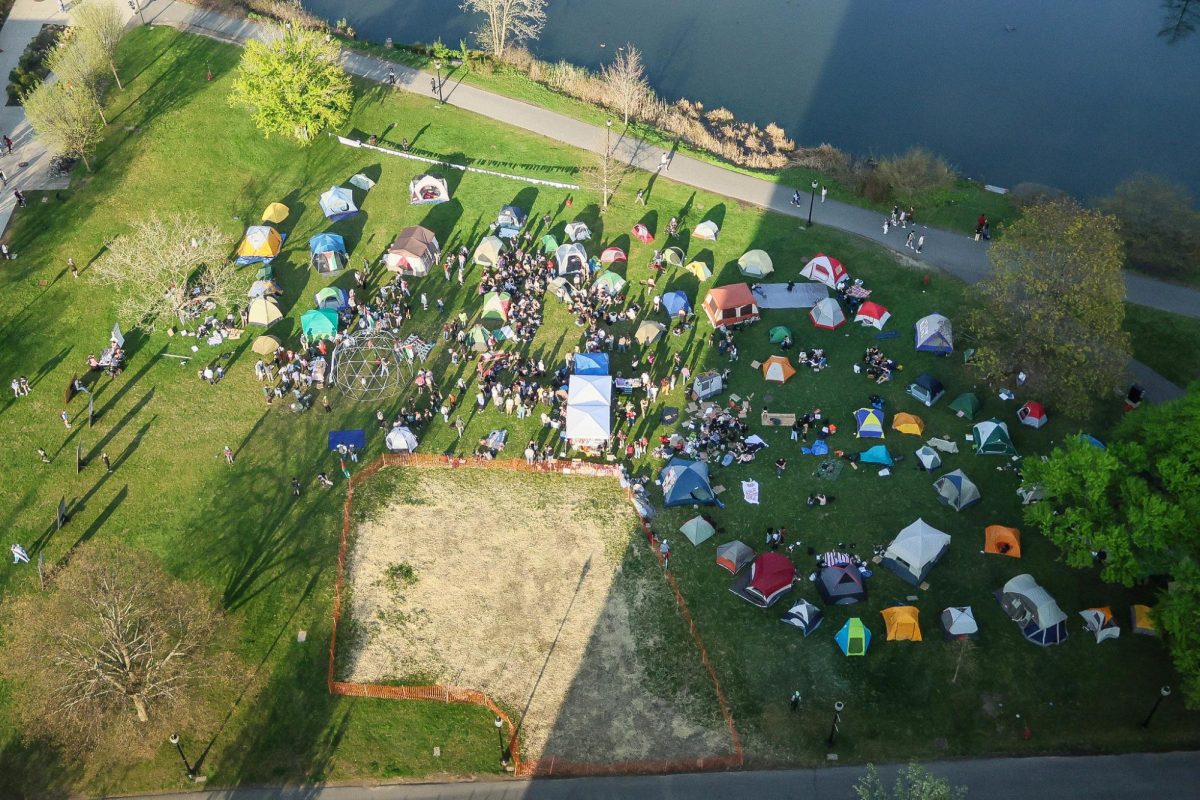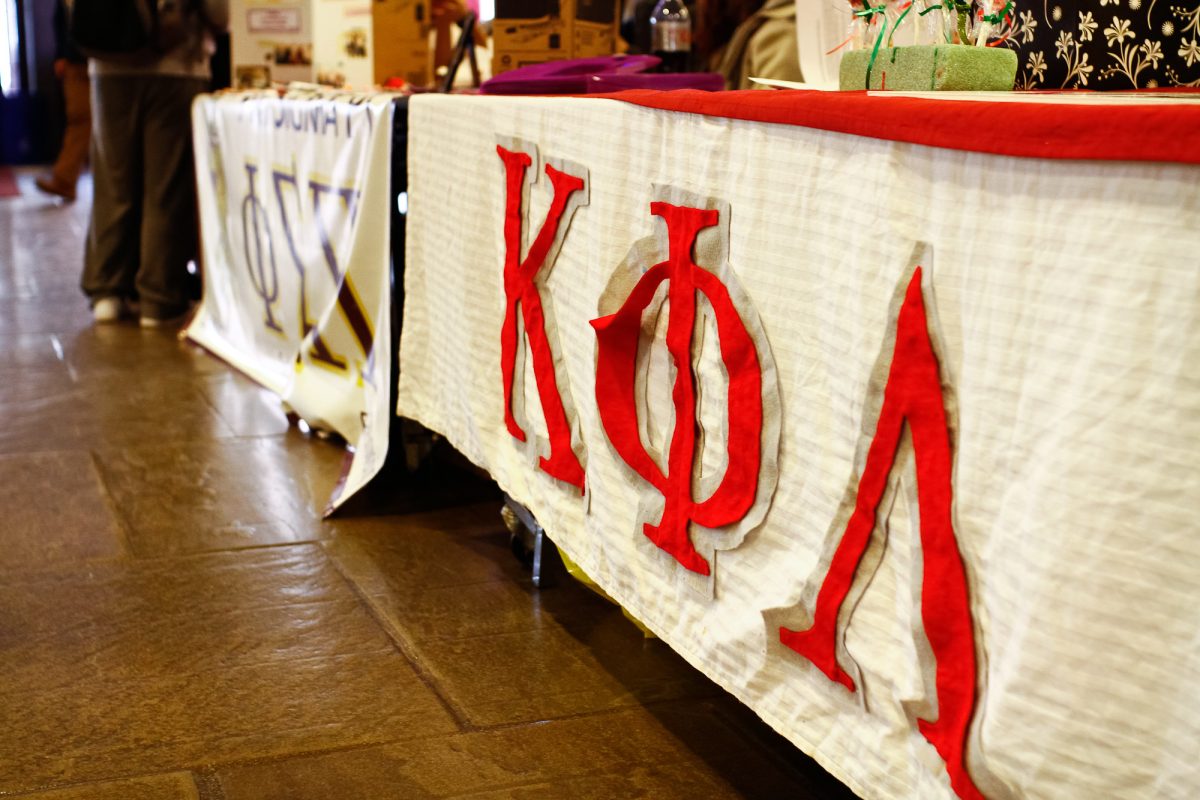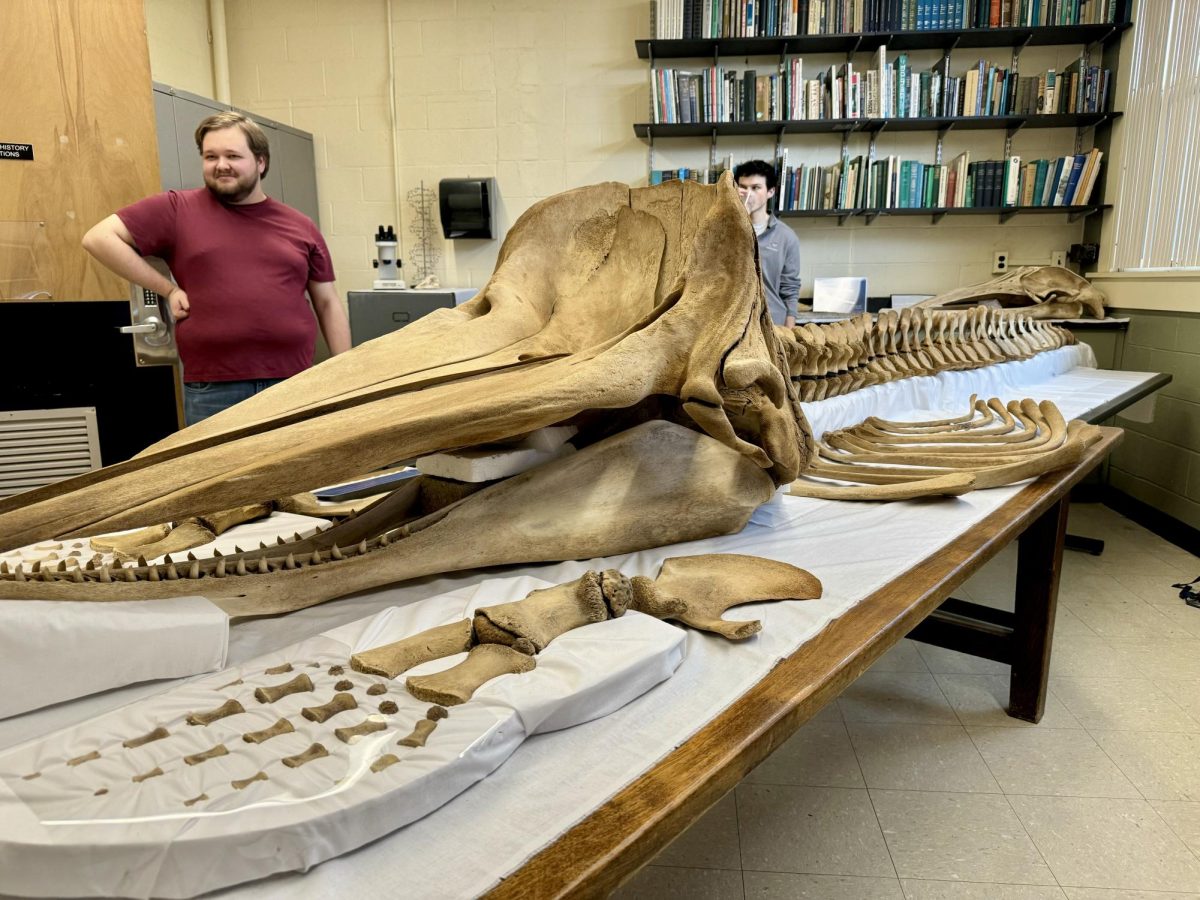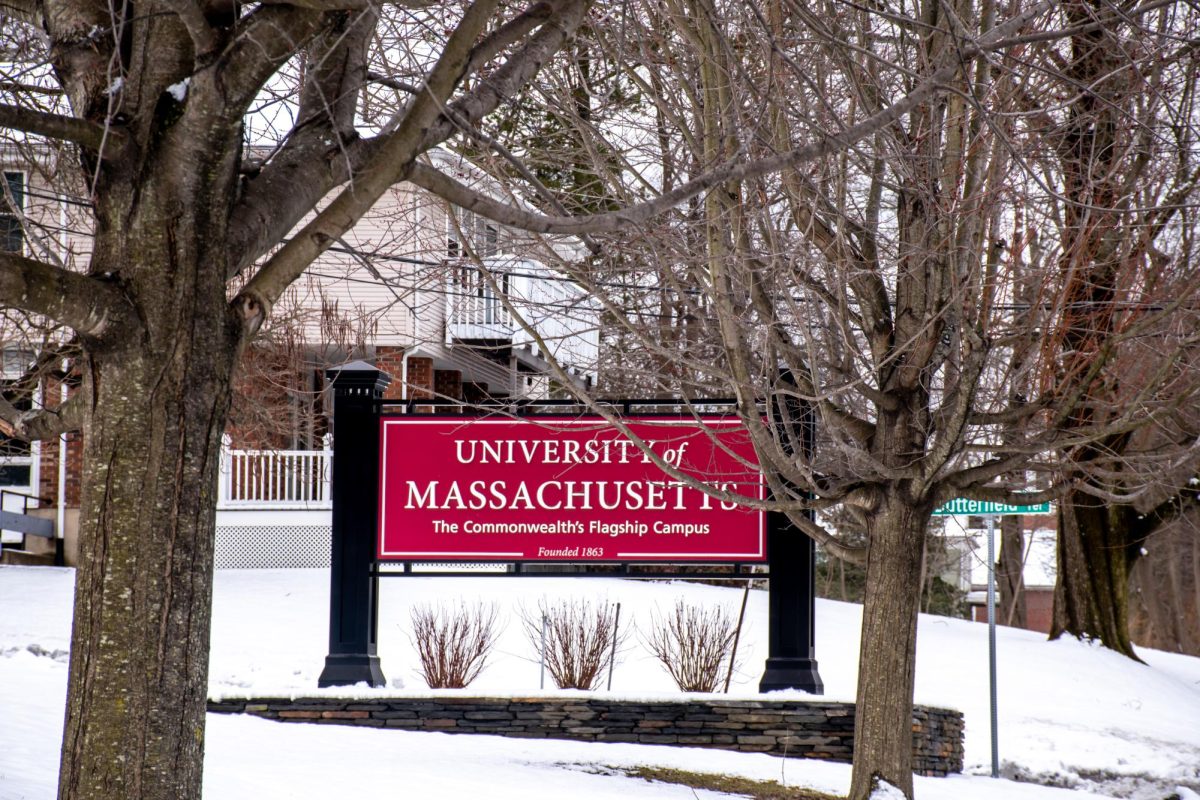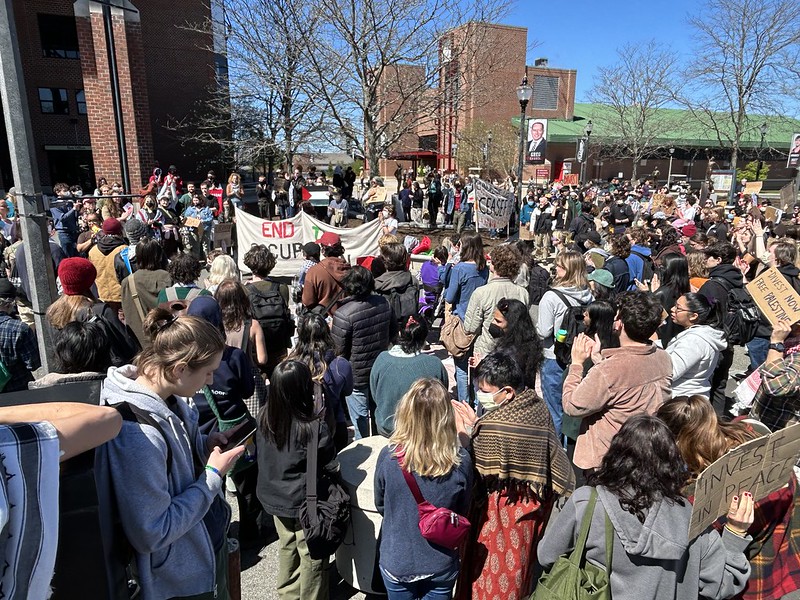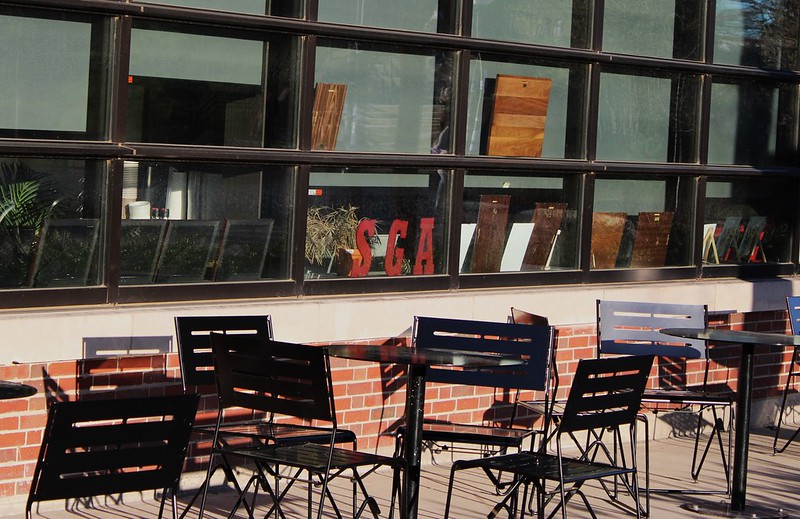On Thursday, Nov. 16, University of Massachusetts Hillel hosted Shye Klein Weinstein, a survivor from the Oct. 7 Nova music festival, to speak about his experience. About 40 people were present that evening.
Weinstein, a 26-year-old Toronto native, originally went to Israel this April to visit his family who he had not seen for years. While he was there, he chose to stay and make Aliyah, a process enshrined in Israel’s Right of Return Law allowing any Jewish person to move to Israel and obtain citizenship.
This October, Weinstein chose to go to a music festival with his cousin and a few friends. The choice to attend the Supernova Sukkot Gathering (called Nova) was a last-minute decision. Weinstein originally did not plan on attending because he thought it would be overcrowded, full of music he didn’t enjoy and he wouldn’t be able to make new friends. To his surprise and delight, the festival was an incredible experience, and he was disappointed when the sun began to rise early the next morning.
“It was truly some of the most fun I’ve ever had,” Weinstein said. “Everybody [was] laughing, smiling and enjoying themselves. [There was] the overwhelming feeling of love and compassion.”
After spending the better part of the early morning taking pictures with people, Weinstein called his friend Ellie to meet back up with her. While on FaceTime, at around 6:30 a.m., he saw the first rocket.
Rocket firings into Israel were common prior to the Oct. 7 attacks, which Weinstein demonstrated by asking the room how many people had been to Israel before. A vast majority of the room raised their hands. When asked how many of them had been in Israel when rockets were shot, the same number raised their hands again.
Weinstein said that he quickly realized that the amount of rockets being fired was unnatural and that everyone at the festival, regardless of their age, had never experienced that many being fired.
The next hour was a flurry of anxiety and stress. Weinstein went back to his campsite, and while his cousin and friends were packing the tent they had used, he went around the festival’s grounds and began meeting people and taking photographs on his film camera. Some people, such as Ori and Evegny, were calm amidst the chaos. They enjoyed their breakfast and sat relaxed outside their tent. Others were a little more rushed as they tried to aid those who were struggling to help others stay well fed and hydrated.
Around 7:41 a.m., after returning to his camp with his friends, Weinstein described hearing gunfire come from the main festival grounds. Panicking, his group split into two cars, with him in one of the driver’s seats. Both groups quickly ran into traffic as they struggle to leave the festival site.
Weinstein described cars crowding around each other trying to flee and he told his cousin, “I don’t want to wait…. I’m not patient enough to wait for these people. I don’t know them…. I don’t care what’s going on around us, only what’s happening to and in this car. He said I should care because they are my brothers and my sisters. I don’t respond, but I do think to myself, ‘You can’t do anything for your brothers and your sisters if you’re dead.’”
When the group finally made it out of traffic, they drove into a field where Weinstein described gunfire erupting around them. The five people evacuated the car and cowered as low to the ground as possible. His cousin eventually ran back to the car and drove the group into a grove of orange trees. Weinstein remembers other cars following while those without cars ran into a nearby set of woods.
The group eventually made it onto the main road, where they could get a signal to pull up proper directions to find their way home.
“Every hill, every corner we pass I think there’s men waiting to shoot us,” Weinstein recalled.
Weinstein discussed passing through checkpoints and seeing victims shot in their cars and on the side of the roads. He said that he made sure the women in the back seat of the car kept their heads low as the car swerved around bodies in the road.
Weinstein said he helped direct his cousin while taking pictures and videos of the destruction in the streets, with the journey alternating between accelerating to get home and slowing down to navigate checkpoints and abandoned vehicles.
“We arrived at the festival just after 1 a.m., maybe 2 a.m.,” Weinstein said. “The rockets began around 6:30, we were at our car in the parking lot by 7:40. In the field just after 8. We were safe home in Tel Aviv at 9:45 in the morning.”
“Events like this are impactful, especially on our community… Unfortunately it’s events like this that bring us together,” he said. “We have to be there for one another in order to survive what’s happened on Oct. 7 and to make sure we can survive in the future. To make sure that we prosper and stay well.”
When Weinstein got his film developed a few days later, he shared the photos of the people he photographed on social media and across news platforms, requesting the networks to show the pictures. Weinstein wanted to make sure that the people he took pictures of got the photos and were alive.
Weinstein received hundreds of messages and comments from people saying how they knew the people in the photographs. Days later, Weinstein met the people he photographed for the second time at the Super Nova Safe Zone near Herzliya.
“I was so terrified that I had dozens of photos of dead people,” Weinstein said. “But that’s not the case.”
Official reports state that there were 1,200 victims in the Oct. 7 Hamas attacks, which also resulted in Hamas taking about 240 hostages. Remains are still being identified, and the death toll is subject to change. Since Oct. 7, Israel has launched a counter-offensive utilizing both airstrikes and ground troops that has displaced an estimated one million residents of the Gaza Strip and killed over 11,000. The attacks are part of a long-standing conflict.
At the end of his presentation, Weinstein opened the floor to those who had questions. Some of the questions asked how he is seeking treatment for his trauma, how his life has changed and what led him to share his story, but he avoided answering questions that had a political bend.
“Coming to a space like this, it’s important to [also] support Shye and his storytelling,” Shanna Fishel, a Northampton resident, said. “There’s so much hate in the outside world and there’s so much division. Grief is becoming political, so coming to a place that is not political [is good].”
Danielle Barvibay, a teacher at a Jewish Day school in Northampton, said, “I’ve had friends who were murdered on Oct. 7…. I hear those stories every day on Instagram, but seeing a person in front of me was very much needed.”
Ashwin Iyengar, a senior biology major, said, “Coming here and hearing from such an important first-hand source, providing this insight and this information is something that’s really needed right now.”
Weinstein said that sharing his story is his way of helping those who cannot speak about their experiences. “Many don’t have the English in order to put together to describe how they feel or what they saw,” he said. “I do. And I have the photos and videos to go along with it.”
Kalina Kornacki can be reached at [email protected] or followed on Twitter @KalinaKornacki.

